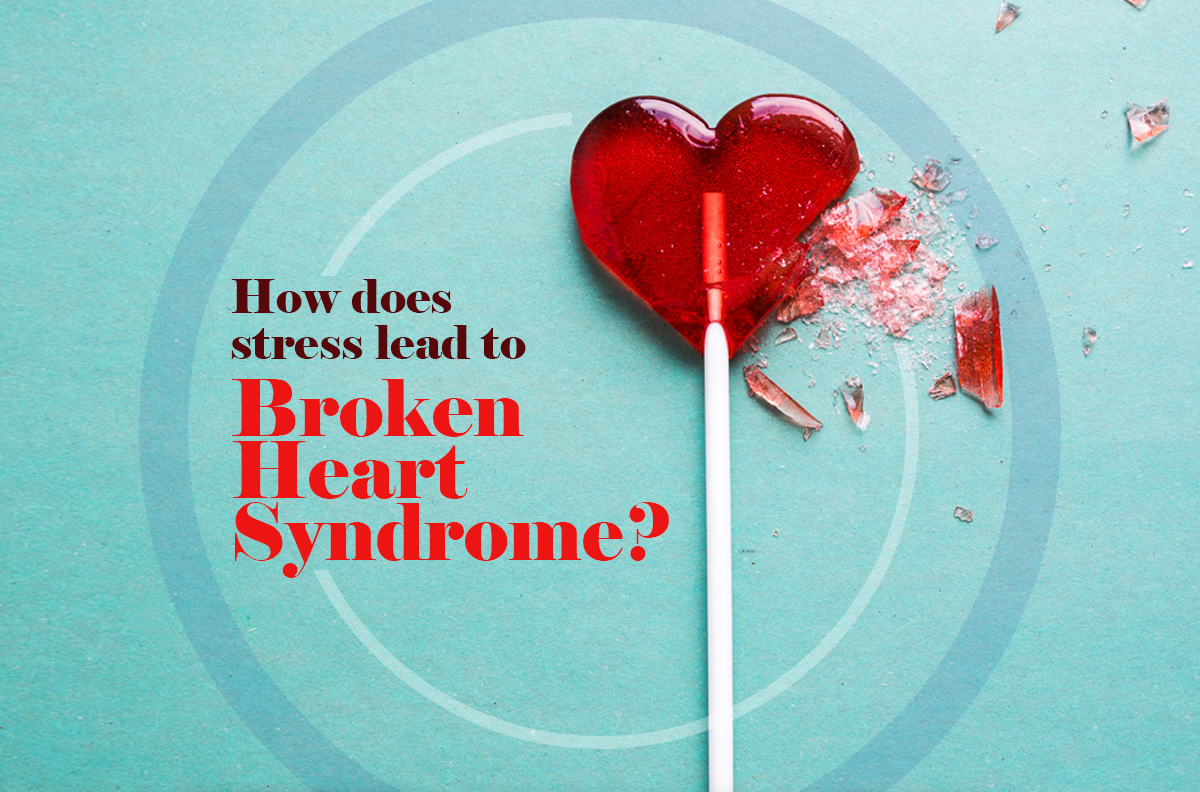
Broken heart syndrome is a condition that can cause rapid and reversive heart muscle weakness, also known as stress cardiomyopathy. The symptoms can mimic symptoms of a heart attack, including chest pain, shortness of breath, sweating, dizziness. When you experience a stressful event, your body produces hormones and proteins such as adrenaline and noradrenaline that are meant to help cope with the stress. Excess adrenaline can cause narrowing of the small arteries that supply the heart with blood, causing a temporary decrease in blood flow to the heart. Adrenaline